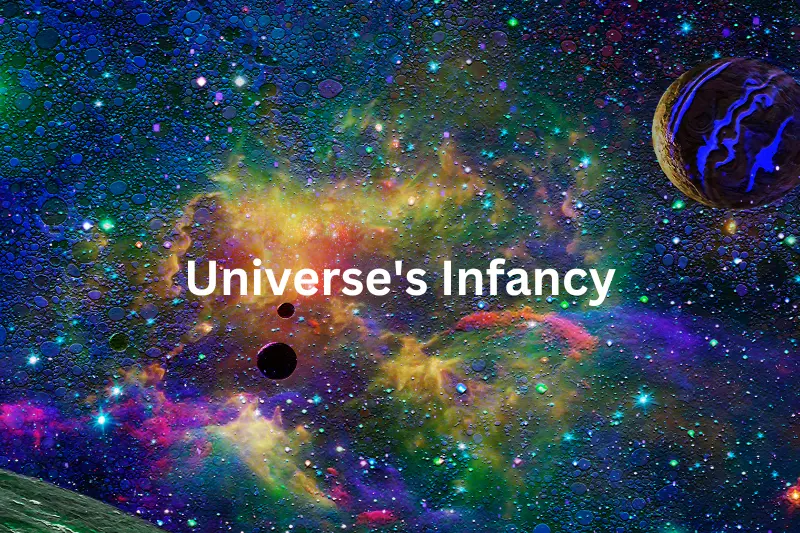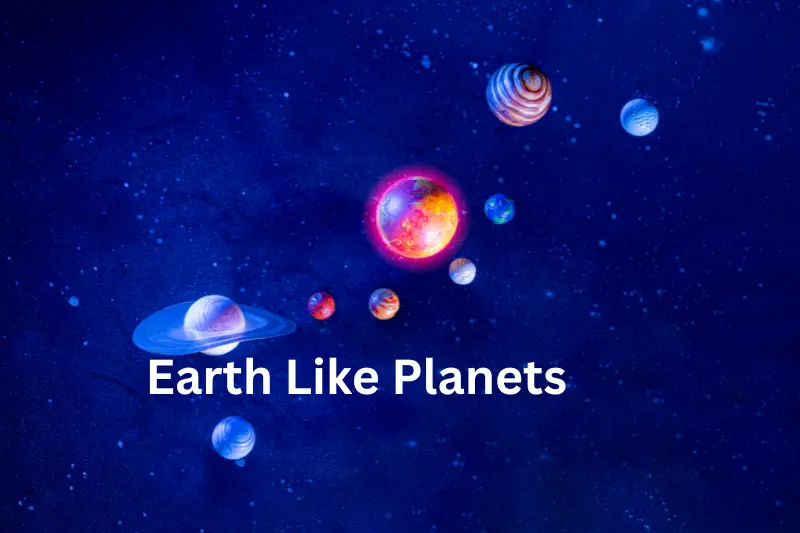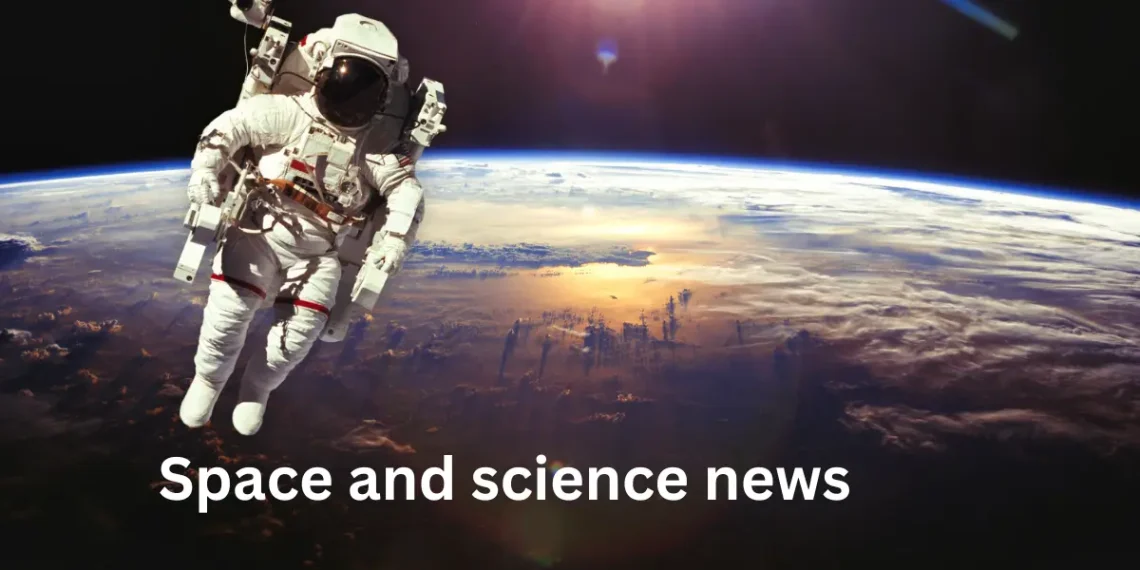Embarking on a journey through the cosmos has always ignited human imagination. From the early days of stargazing to the sophisticated explorations of today, our quest to understand the universe remains unyielding. In recent times, this pursuit has yielded remarkable discoveries and advancements, keeping enthusiasts and scientists alike riveted. Let’s delve into the latest developments in space and science news, uncovering the mysteries and marvels that continue to shape our understanding of the cosmos.
Unveiling the Universe’s Infancy

Astronomers have recently captured the clearest images of the universe’s early moments, providing profound insights into its formation. Utilizing the Atacama Cosmology Telescope (ACT) in Chile, scientists observed the cosmos as it appeared just 380,000 years after the Big Bang. These observations reveal the distribution and movement of primordial hydrogen and helium gas clouds, which eventually coalesced to form stars and galaxies, including our own Milky Way. The data aligns with the Lambda Cold Dark Matter (Lambda CDM) model, reinforcing our current understanding of cosmology and offering a glimpse into the universe’s infancy.
Neptune’s Dazzling Auroras Captured
The James Webb Space Telescope (JWST) has provided unprecedented images of Neptune’s elusive auroras. These shimmering lights, caused by charged particles colliding with atmospheric molecules, differ from Earth’s polar auroras by occurring in Neptune’s mid-latitudes due to its unique magnetic field. This marks the first detailed observation of Neptune’s auroras since Voyager 2’s mission in 1989, offering new insights into the planet’s atmospheric dynamics.
Health Challenges in Space: The ISS Microbiome
A recent study has highlighted health concerns aboard the International Space Station (ISS) related to its overly sanitized environment. Researchers found that the lack of microbial diversity in the ISS may contribute to chronic inflammatory diseases among astronauts, manifesting as rashes, unusual allergies, and infections. The study suggests that reintroducing beneficial Earth microbes could mitigate these health risks, emphasizing the importance of a balanced microbial environment in space habitats.
Preparing for the Final Frontier: Astronaut Fitness Regimens
As private space missions become more prevalent, astronauts like Kellie Gerardi are intensifying their fitness routines to prepare for the rigors of spaceflight. Gerardi’s regimen includes daily walking, running, core strengthening, and interval training to enhance cardiac health and tolerance for high G-forces. Her preparations underscore the physical demands of space travel and the importance of tailored fitness programs for astronauts.
Your next obsession starts here. Dare to click?
Free Mod APKs Download – Unlock Unlimited Features Now!
Best Mod APKs For Android You Can’t Afford To Miss Today!
Unlimited Money Mod APK | Play Smarter With Endless Riches
Premium Unlocked Mod APK – Unlock Limitless Power Today
Capturing Stellar Births and Distant Galaxies
The JWST continues to amaze with its ability to capture intricate details of the cosmos. Recently, it imaged a plume of gas and dust from a forming star, set against the backdrop of a spiral galaxy. This “lucky” alignment provides a clearer view of stellar formation processes and the structure of distant galaxies, enhancing our understanding of the universe’s evolution.
Discovering Earth-Like Planets Nearby

In an exciting development, scientists have identified four Earth-like planets orbiting a nearby star. This discovery holds significant implications for the search for habitable worlds and the potential for life beyond our solar system. These planets, located in our cosmic neighborhood, offer promising targets for future exploration and study.
Challenges of Isolation: Lessons from Antarctica
The psychological and social challenges faced by scientists in Antarctica provide valuable insights for long-duration space missions. Recent incidents of interpersonal conflicts at the Sanae IV station highlight the difficulties of extreme isolation and confined living conditions. These experiences underscore the need for comprehensive psychological preparation and support for teams embarking on extended missions, whether on Earth or in space.
Upcoming Celestial Events: Partial Solar Eclipse
Sky watchers have an exciting event to look forward to: a partial solar eclipse occurring this weekend. This celestial phenomenon will be visible in the northeastern part of North America, much of Europe, and Russia, offering a spectacular display for astronomy enthusiasts. Observers are advised to use proper eye protection to safely enjoy this event.
Advances in Space Exploration: Rocket Launches and Satellite Deployments
Recent advancements in space exploration include the successful launch of eight wildfire detection satellites by Rocket Lab from New Zealand. This mission aims to enhance our ability to monitor and respond to wildfires, demonstrating the growing role of space technology in addressing environmental challenges on Earth.
Additionally, SpaceX continues to expand its Starlink satellite constellation, launching 27 satellites into orbit from California. These efforts contribute to global internet coverage and showcase the rapid progress in commercial space endeavors.
Final Thoughts
The relentless pursuit of knowledge drives humanity to explore the vast expanse of space, uncovering its secrets and expanding our understanding of the universe. From observing the earliest moments of the cosmos to preparing for future interplanetary missions, each discovery and advancement brings us closer to comprehending our place among the stars. As we continue to navigate this ever-evolving frontier, staying informed and engaged with the latest space and science news fuels our collective curiosity and inspires the next generation of explorers.
FAQs
What is the latest discovery about the early universe?
Astronomers have captured the clearest images of the universe’s infancy, showing how gas clouds formed stars and galaxies. This reinforces our understanding of cosmic evolution.
How does Neptune’s aurora differ from Earth’s?
Unlike Earth’s polar auroras, Neptune’s occur in mid-latitudes due to its unique magnetic field. The James Webb Space Telescope recently captured these dazzling light displays.
Why is astronaut health a concern on the ISS?
The overly sanitized environment on the ISS reduces microbial diversity, leading to potential health issues like chronic inflammation. Scientists suggest reintroducing beneficial microbes.
What are the challenges of long-duration space travel?
Astronauts face physical strain, psychological stress, and social isolation. Insights from Antarctic researchers help develop strategies for maintaining mental and physical well-being in space.
When is the next major celestial event?
A partial solar eclipse is set to occur this weekend, visible in parts of North America, Europe, and Russia. Remember to use proper eye protection when viewing.





